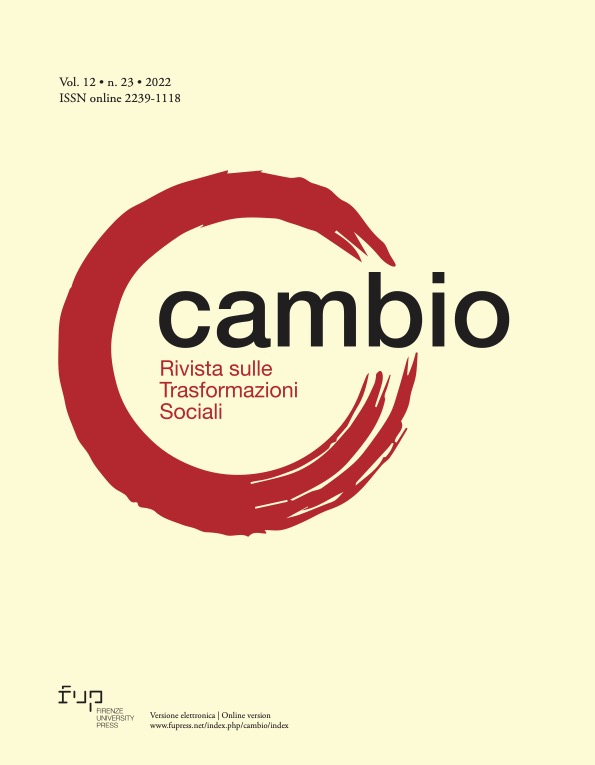Published 2022-06-13
Keywords
- social consequences of epidemics in early modern Italy,
- Norbert Elias,
- sociology and historiography,
- human interdependence,
- civilizing process
How to Cite
Abstract
The paper aims to relate the observations of some historians who have dealt with epidemic events in early modern Italy to some central features of Norbert Elias’ approach, and to observe some social phenomena related to such events in the perspective of Eliasian sociology. In this way, we will try to suggest that the social implications of great epidemic events that occurred “in the past” can be included among the various fields of investigation in which the Eliasian approach can be tested, and we will attempt to highlight the usefulness of some key concepts of the figurational sociology for the interpretation of what can be observed in that field. With particular reference to seventeenth-century Tuscany, attention will be focused on some dynamics of change that involved – at the same time – both certain institutions engaged in the fight against the plague and certain dimensions of people’s attitudes and “sensibilities”. Following Norbert Elias, we will also try to suggest that the role played by the plague in defining the direction of those dynamics of change was part of a broader (civilizing) process.


